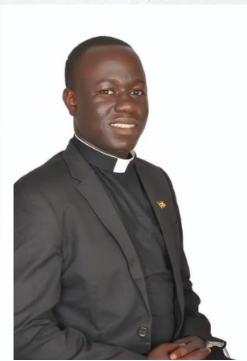The Youth Should get involved in Leadership
Leadership is most commonly held to have the ability to motivate others to achieve set goals. The youth should take leadership in church, cultural, and religious institutions.
The youth ministry must be rooted in the biblical foundation in order to effectively communicate with fellow young people, which will allow them to build meaningful relationships.
Young people are a tremendous and essential asset but also can be a possible threat when denied access to decision making.
According to UNDP, people under the age of 35 years are rarely found in religious, cultural, and political positions, which results in poor representation of the age bracket.
In Uganda today, the youth should be given chance to participate in social, political, religious, and economic spheres of transformation.
Youth leadership is a practice of exercising authority over themselves or others.
According to the Vatican, a youth is a person between the ages of 16 to 35 years; however, this age range differs depending on the country. Youth is a time of life when one is young and often means the time between childhood and maturity — it’s an appearance of freshness, vigor, and spirit.
Biblically, God often used the youth to do great things, like David, the Uganda Martyrs, even Jesus Himself, who redeemed humanity.
A youth, in order to ably take on leadership, should:
-
Empower others (recall it’s not about him or her),
-
Get organised,
-
Have a plan B,
-
Be flexible,
-
Know that others matter too.
This will help the youth serve in vital places like boards and other staffs.
The next generation should be formed wholly and partially. In some organisations, the youth are proving to be dynamic and ready to make things happen — though they need restraining from people of experience.
Youth-led programs, services, and organisations provide care and assistance that the youth need to cope with challenges of democracy and civic demands.
The youth is the backbone of the nation and is the future. Therefore, they should be empowered to play their role in the development of society.
They should be supported to participate in decision making — and this will enable them to have:
-
Confidence and self-belief,
-
Exercise positive career choices,
-
Greater involvement and responsibility in the future.
A war cannot only be won by the old king and clever ministers — you need energetic soldiers to fight the battle.
The youth should not be eliminated in all leadership spheres — be it cultural, political, or religious arenas.
Youth leadership programmes can take on various forms like advocacy groups, peer education, and service delivery.
The youth should be taught confidence:
-
In clans,
-
In churches,
-
In villages.
Even sports activities can teach confidence and emotional control measures.
The senior citizens must:
-
Give a good example,
-
Take part in youth engagements,
-
Teach youths to be organised with time and other responsibilities,
-
Encourage them to make the world a better place,
-
Explain to them that failure is not final,
-
Allow them to make their own decisions.
The youths should direct themselves and identify what matters to them — read the signs of the time.
Let’s always recall: Success without a successor is failure.
The youth should struggle to ensure that the church, culture, and the state do not collapse in their time. The elders have kept them intact — therefore they deserve respect, because even in their old age they can still bear fruit.
Rev. Fr. Joseph Balikuddembe,
Kamwokya Parish (Kampala Archdiocese)
Balix2jo@gmail.com

